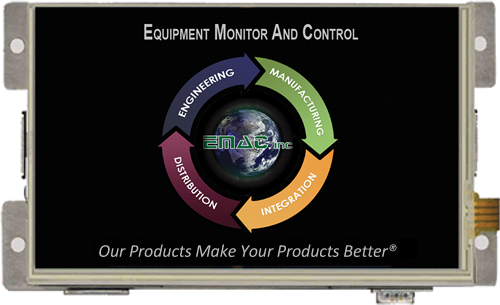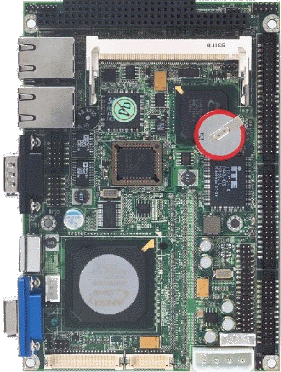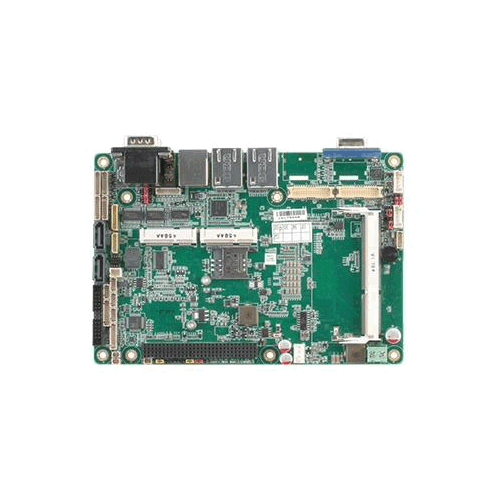Our Products Make Your Product Better®

Related Products
The PPC-07-IMX6M is a powerful out of the box Compact Panel PC solution. This system comes ready to run with the Operating System installed on the on-board flash.
The CPU is EOL for this product, please see this article for more information. The PCM-5315 is based on the AMD Geode LX800/900 500/600 Mhz CPU and is designed to provide the ideal combination of low power, great performance, widely expanded interfaces and small size for applications that require a small form factor and lower-scale processor support. **CompactFlash card and RAM not included.**
The EPIC-BDU7, harnesses the full potential of the processors’ Ultra Low Power (ULP) technology to bring its required wattage down to a mere 15W, allowing a fanless configuration. Graphics capabilities are enhanced with the support for the latest Ultra HD (4k resolution) videos and triple simultaneous display.
The EPIC-BDU7 comes equipped with Intel®’s 5th Generation Core™ Processors, delivering high performance at a very low power consumption of 15W. Intel®’s latest processors bring enhanced graphics processing capabilities with support for 4K resolution video and media content while offering 3-independent displays from the board’s LVDS, VGA, DisplayPort, and eDP options. Support for the latest operating systems and today’s high speed I/O devices are available in this new generation of product.

Xenomai Real-time
EMAC has been offering Xenomi Real-time operating system "RTOS" extensions as an option to our EMAC OE Embedded Linux distribution. Xenomai is offered as one of many optional off-the-shelf Linux modules available for our distribution. EMAC, can also provide custom Real Time Drivers and Application assistance if required. Additionally, EMAC provides a Xenomai SDK plug-in to our IDE for program development.
Xenomai is a Free Software project in which engineers from a wide background collaborate to build a versatile real-time framework for the Linux© platform. While Xenomai is a real-time development framework cooperating with the Linux kernel, in order to provide a pervasive, interface-agnostic, hard real-time support to user-space applications, seamlessly integrated into the GNU/Linux environment.
The main project goal is to help migrating industrial applications from proprietary real-time systems to Linux.
Xenomai is about making various real-time operating system APIs available to Linux-based platforms. When the target Linux kernel cannot meet the requirements with respect to response time constraints, Xenomai can also supplement it for delivering stringent real-time guarantees based on an original co-kernel technology.
Originally named Xenodaptor, the project that would soon become Xenomai was announced on August 2001 by Philippe Gerum. The Xenomai 1.0 milestone was reached in March 2002.
In its early days, Xenomai used to be an add-on component to real-time Linux variants for emulating traditional RTOS, originally based on a dual kernel approach. Over the years, it has become a full-fledged real-time Linux framework on its own terms, also available on single/native kernel systems.
Adeos/I-pipe are companion projects to Xenomai, which implements a key component of a dual kernel configuration: the interrupt virtualization mechanism delivering high priority events to the Xenomai co-kernel with short and predictable latencies. Xenomai was the first real-time extension to be ported over the I-pipe, followed a year after by RTAI.
In the 2003-2005 period, the original core team members – namely Gilles Chanteperdrix and Philippe Gerum – contributed significantly to the RTAI project, before focusing back on Xenomai’s own goals, which led to the release of Xenomai 2.0 in October 2005.
Since then, Xenomai 2 has been actively maintained and ported to various CPU architectures, for a user base mainly involved in the industrial automation industry.
The Xenomai 3 architecture introduces a paradigm shift, as users are no more tied to the dual kernel configuration enabled by the I-pipe, but may run the real-time APIs and their applications transparently over a single kernel configuration as well.




